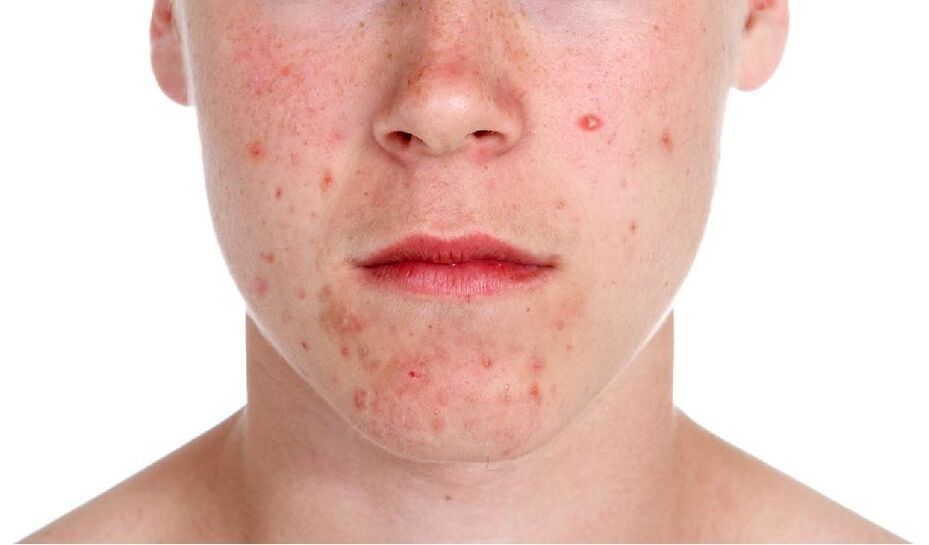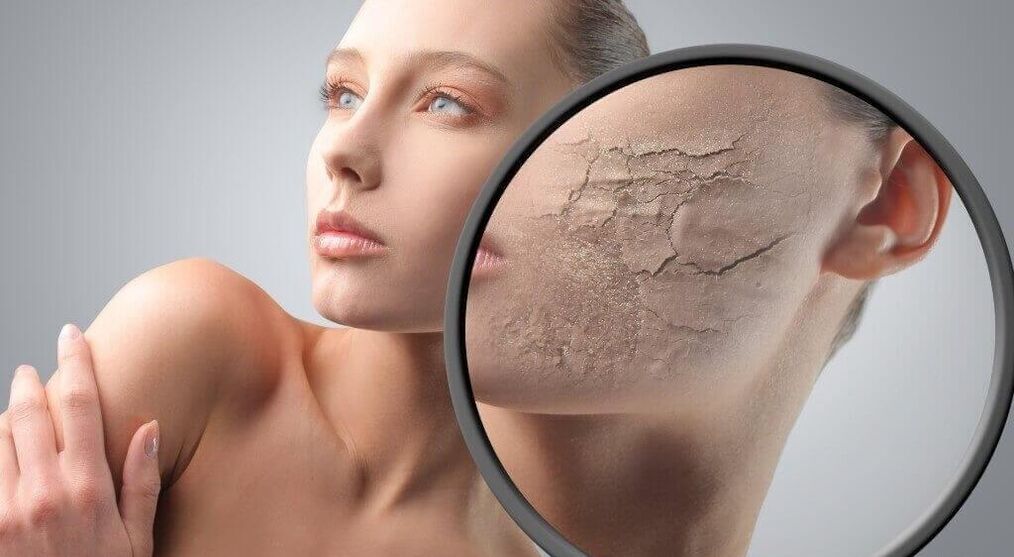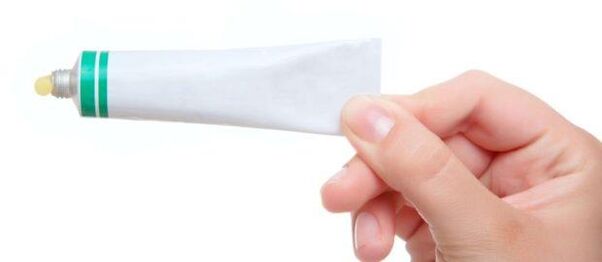Many skin diseases are known to humanity in the modern world, and one of these is psoriasis.According to statistics, only three percent of the population of the world is faced with this ailment.In order to recognize it in time at yourself, you need to know the symptoms and causes of psoriasis.

What is psoriasis
Sometimes it happens that people do not have the main signs of skin psoriasis in the form of red plaques, then it is much more difficult to recognize it.Often, with psoriasis, itching of the skin occurs.Psoriasis often occurs on the scalp, knees and the outer surface of the elbow.Less commonly, spots can occur on other parts of the body.Psoriasis is a non-infectious skin disease, accompanied by a characteristic manifestation of light pink inflammation in the form of spots and white peeling scales.
Dermatosis
This is a collective name for skin diseases, during which special symptoms are detected.Psoriasis refers precisely to such a disease with pronounced inflammations on sensitive skin.Psoriasis is a non -infectious (it is non -contemporaries) a disease that has a chronic form.The emerging reddish spots appear under the name as psoriatic plaques.Such spots are a sign of chronic inflammation.They talk about the redundancy of proliferation of lymphocytes and skin macrophages.Small capillaries on the skin also appear excessively.The reasons mentioned above entail an impressive seal and itching in places of inflammation.
Psoriatic spots
Inflamed spots can appear on sensitive scalp, on the inside of the palms and on the wrists, on the feet and in the genital area. Psoriatic spots or, as they are called differently, plaques are usually formed for the first time in those places that are regularly subjected to friction with clothing - elbows and knees, especially their bends, lower back and external part of the thigh.Psoriasis is a disease that can be compared with a tide of waves.It has a wave -like course: with it, remission and exacerbations caused by different circumstances are not excluded. Such circumstances may be excessive drinking of drinks containing alcohol, the appearance of various infections and stressful conditions that provoke the occurrence of new inflammations. Remission is achieved thanks to systematic and proper therapy.

The form of severity of the disease
The disease is completely different not only in different people, but also in one.For example, a person subject to stress or other reasons provoking exacerbation can be completely covered with reddish spots of psoriasis.Psoriasis does not necessarily affect the whole body, the disease sometimes spreads locally to specific areas of the skin.With a lack of proper and timely therapy, the disease increases and occupies a large area of damage.In different people, the disease passes differently: sometimes it is continuous, without obvious progress and remission.In severe cases, even nails are subject to the disease.In a severe course of the disease, joint problems may appear, caused by inflammatory processes and called arthropathy.
The causes of psoriasis
In the world, reliable causes of psoriasis are still unknown. Inflammation can appear due to failures in the work of immunity in the human body, due to stressful situations and impaired metabolism. Many scientists believe that the appearance of psoriasis is due to a genetic factor.It is customary to think that psoriasis in a child under ten years of age is heredity in which non -infectious disease appeared.If the disease manifests itself in adulthood, this indicates that psoriasis arose due to some kind of virus or infection.Factors whose presence in life can lead to psoriasis:
- Long stress states;
- Thin skin prone to dryness;
- Habits destructive for health (most often alcohol abuse);
- Various infectious diseases (fungi, staphylococcus)
- Excessive hygiene of the skin;
- Hereditary predisposition;
- External irritating factors, poor ecology;
- Impaired metabolism that affects the regeneration of the skin;
- Failure in the functions of the endocrine system (as a rule, they are hormonal malfunctions);
- The appearance of allergies;
- Liver disease;
- Colitis, enteritis, dysbiosis (all kinds of disorders of the gastrointestinal tract).

Psoriasis is not an infectious disease in which a person needs to be isolated.If you have direct contact with the carrier of the disease, it's okay, psoriasis will not be transmitted to you.Damage to the function of the barrier of the skin is a serious place in the exacerbation of the disease.Any injury or irritation, friction, abuse of soap and shower gels (excessive hygiene), regular contact with harmful household chemicals, which causes irritation on the skin, can spoil such a barrier.Dry skin also leads to the thinning of the protective barrier. According to people subject to psoriasis, foci of inflammation can suddenly increase or vice versa become less without obvious reasons.
Stress with psoriasis
It is worth remembering that often the first symptoms occur after a stressful state.Stress can be both physical and psychological.Symptoms can appear after various skin damage in places where primary plaques occurred.Symptoms of psoriasis can occur in a person who has been ill with an infection.The conditions provoking this disease: chronic infections, acute, severe stresses, climatic temperature changes.The abuse of alcohol, smoking, excess weight, unhealthy nutrition complicate the course of the disease.Treatment of psoriasis becomes difficult.All these conditions cause exacerbations, the area of affected skin increases.Various decorative cosmetics with individually intolerable components can exacerbate psoriasis.It is worthwhile to carefully read the labels on products, especially on products that are designed for the skin: creams, gels, lotions, etc.
People who suffer from HIV infection or AIDS are often subject to psoriasis.Such a disease in sick people with HIV and especially with AIDS is quite difficult, is difficult to treat.Often in such cases, standard therapy is ineffective.Most often, psoriasis is found in women, not men.Also, this disease manifests itself in people with thin dry skin.People with oily and well -moistened skin rarely suffer from such a disease.It is generally accepted that the skin fat is a barrier that protects the skin from bacteria in which psoriasis occurs, and in dry skin with minimal skin, such a barrier is absent.Therefore, psoriasis is often manifested in areas of skin subject to friction and chemical effects of substances (dishwashing products, etc.).

Recommendations of doctors
For people with psoriasis, for the sake of avoiding dry skin, it is recommended not to use washcloths when washing and hard scrubs with large granules.Such granules damage the skin and disrupt its protective function.Scrubs leave small scratches and “tear” the highest thin layer of the skin from the skin.Fight scrubs scrap skin, which moisturizes the skin, so the skin is too dried, which is not supposed to be psoriasis.Doctors recommend using a product that nourish and moisturize sensitive skin.The category of such funds includes nutritious lotions that help in the work of sebaceous glands.It is extremely undesirable to use soap, which dry the skin very much and causes peeling.Washing dishes should be in special gloves, becauseThis will allow the skin not to contact with dishwashing products, which can also provoke the disease.Psoriasis is not considered an infectious disease, such a non -infectious disease.If there is more than one person in the family with psoriasis, this is due to the fact that the disease can be transmitted hereditarily.
Symptoms of psoriasis
The exact causes of psoriasis on the body have not been established, but its symptoms can be detected and timely treatment can begin.The most frequent symptoms of skin psoriasis:
- Sensation of itching;
- Possible pain in the joints, becausePsoriasis sometimes affects them, causing the so -called psoriatic arthritis;
- The main symptom of psoriasis is plaques.Small rashes in the course of the disease are gaining liquids, opened.In their place, crusts have a light shade.Sometimes a yellowish plaque is formed;
- Perhaps bleeding from psoriatic spots.

Skin psoriasis is inflamed not only directly on the skin, but also on the nails.Although such cases are much less common, and the occurrence of psoriasis on the nail plates indicates a severe form of the disease.Due to psoriasis, the pain in the joints and bones, in the spine and tendons is aggravated.The disease provokes disorders in different body systems, namely in the immune and nervous.Violations in the endocrine system are also not uncommon.In this type of disease, kidneys, liver and thyroid gland are subject to various failures.A person who has psoriasis suffers from very tangible weakness, chronic fatigue and poor mood, which can transform into a stronger depression.Psoriasis began to be called a psoriaticeck disease, becauseHe entails various consequences unrelated to the skin.
The skin psoriasis is characterized by a constant rash that has the appearance of flaky spots of reddish shades.Such spots are not large, most often it does not exceed three centimeters, but the problem lies that this kind of spots can chaotic together, affecting large areas of the skin.Typically, the first plaques appear on the skin, on which frequent friction occurs due to flexion of the limbs.Therefore, spots first of all occur on the elbows and inside of the knees.They also appear on the head and palms.The skin of the hands is often dried more than the skin in other parts of the body.This is due to contact with various harmful substances, for example, due to washing aggressive means.
Treatment of psoriasis
When we found out what psoriasis is and how it manifests itself, we can do its treatment.Unfortunately, psoriasis is not completely cured, but you can go into a long remission in which new plaques will not form on the skin.For successful therapy, it is extremely necessary to take into account the factor in what stage the disease proceeds at this time.In connection with these factors, the main treatment is prescribed.The therapy of the disease is always not there.To do this, use various drugs: ointments designed for external use, physiotherapeutic procedures, a general regime for maintaining remission.It is important not to forget about other possible diseases, age of the patient, about his field, various professional factors and about health in general.

Heavy shape
In a severe course of the disease (more than twenty percent of the body is affected) or if external treatment in the form of ointments does not help, serious drug therapy is often recommended.Popular among patients with psoriasis is photochemotherapy.Photochemotherapy is the use of ultraviolet radiation, in which the patient also drinks tablets that increase his susceptibility to the light.This is important: such drugs can be selected exclusively only with your doctor.When selecting medicines, weight and other individual characteristics are taken into account.Such procedures are carried out more often four times a week, depending on the severity of psoriasis. As a rule, the course of treatment consists of twenty -five sessions. Such therapy has various contraindications, so it is very important to discuss other available diseases with a doctor.Based on this, he will select medications and treatment.
Light shape
With a slight form of psoriasis, methods of non -traditional or folk medicine are sometimes used.In a simple form of psoriasis, when small areas of the skin are affected, sometimes only ointments are enough.In the modern world, there are many drugs that can be purchased at a pharmacy.For example, salicylic ointment softens skin husks, which helps to exfoliate dry affected spots.Such an ointment helps other drugs better absorb into the skin, which means that it makes them more effective for treatment.Sulfuric delater ointment reduces severe inflammation that cause unpleasant itching.The ointment has various indications that it is desirable to familiarize yourself with so as not to worsen the course of the disease.Such an ointment is forbidden to use on the face.
For the scalp, there are shampoos with the content of tar, which effectively reduce peeling of the skin.They are applied only for one hour, and then thoroughly washed off the skin.Ointments from psoriasis with vitamin D have an anti -inflammatory property.It reduces the symptoms of psoriasis.The ointment is applied to the affected places twice a day.When the therapy prescribed to the patient is ineffective, it is recommended that the use of external remedies, which include hormones.Treatment begins with mild drugs, as a rule, side effects are minimal, which is extremely important with heightened psoriasis.If treatment does not bring effect and relief, you should pay attention to more serious ointments with the content of glucocorticosteroids.

Salicylic ointment is an anti -inflammatory agent.She is also an anti -allergic agent.Therapy with such ointment lasts no more than two weeks, it is applied twice a day and is effective in severe forms, when psoriatic spots bleed and cause extreme discomfort.It also reduces active leukocytes and prevents them from entering the skin.Such an ointment effectively suppresses dry skin, its tightness, and also removes the sensation of itching.
The product does not cause allergies and reduces itching well.Psoriatic plaques when using ointments are less wet.As a rule, this ointment is often used in periods when foci of inflammation increase.The duration of therapy is prescribed by the doctor, but most often it is two weeks, applied twice a day to the affected areas of the skin.























